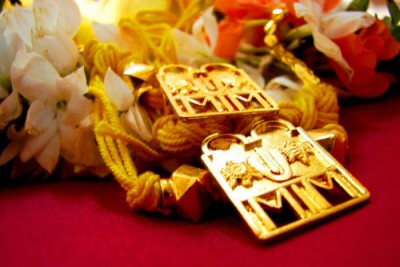by Jaya Siva Murty
When Prabhakar and Kantiratnam first got married in the 1960s, it did not look like that they had been made for each other. In fact, for the limited crowd of relatives who attended and stayed back after the wedding brouhaha was over, it seemed to be a wrestling match from hell.
Kantiratnam was the only daughter of TV Sastry, a lawyer by profession, and she was the youngest in a family with six brothers. As a result of being brought up in a family where rights were as important as values, she had learnt to fight tooth and nail for herself rather early in life.
Prabhakar, on the other hand, belonged to a traditional family with orthodox views and opinions. He had been brought up to believe that men were around whom the household revolved, that it was men who set the ground rules and women who followed them. So when he saw that Kantiratnam did not share the same values as him and preferred to fight over the smallest of instances, all peace instantly evaporated.
You may say that physical attraction would play a part and bring the two together. But what with Prabhakar being aged 18 and Kantiratnam 12, this was hardly the case. Sending Kanti back to her mother’s place for ‘grooming’ into lady-like roles was out of the question, as her father, already annoyed at the societal pressure that had made him marry off his daughter at 12, would have given Prabhakar a piece of his mind. And Prabhakar’s mother felt too overwhelmed by her daughter–in-law to help.
So this was how Chandrasekhar, nicknamed Chandu and 10 years old at that time, got caught in the crossfire. The fights between Prabhakar and Kantiratnam had been getting worse as the days passed by. And worried that the two may kill each other, Ravanamma, Chandu’s mother and Prabhakar’s cousin, started to live there with her son, in order to maintain the peace between the two. It was her job to placate them when volatile fights erupted, and to prevent major mishaps from happening. Though she was rather good at keeping peace at home, nothing could have prepared her for that night. She had to hurry to the neighbouring town to meet an ailing cousin, and with no better option had left Chandu to keep an eye on the two.
Things were peaceful for an hour, and soon it was dinnertime. Kantiratnam had served the food to her husband and Chandu. After serving the curry and rasam, she had just ladled the curds into her husband’s plate of food before turning around to walk away.
“I’m going for a bath,” she told him, without even looking in his direction.
“And who do you think will clear the plate, Kantiratnam?” he asked. The attitude of Kanti simply grated on his nerves, irking him and shaking the orthodox lessons his mother had brought him up with. “Kanti, come back!” Prabhakar reprimanded. “Don’t you know that it is a wife’s duty to clear the plate once the husband has finished food? Did your father not even teach you this?” he continued.
All those who are married and versant with what happens when fathers are brought into such conversation, can only guess what happened here, especially with a couple as volatile as these two. So when a minute later, the plates and glasses started getting thrown about, Chandu decided to intervene.
“Stop, stop atta” he said, stepping between the two, while looking at Kantiratnam and trying to smoothen the ruffled feathers. But he should have looked left and right, for in that very minute a silver plate came flying from Prabhakar’s direction, and though aimed at Kantiratnam, hit Chandu squarely on his head. The world for him was a blur after that and Chandu could only remember it turning black in colour and the feel of thick fluid oozing down his face.
It was a couple of hours later that he woke up, in the comfort of his bedroom, with a bandage around his head and his muttering worried mother beside him.
“Those stupid, worthless, idiotic people,” his mother was muttering, “let them kill each other. I’m never ever going there.” And so it was decided that all efforts were worthless and that Prabhakar and Kantiratnam be left to their own devices, while everyone else lived their lives as usual.
Chandu soon left for Madras. His uncle lived there, and suggested that Chandu live with him for his schooling. It was a peaceful life from then on. Chandu completed his college, and after a few years, even got a job there at the oil refinery, a post that further led to his marriage and two children. Visiting his family at the village from time to time, he learnt that that the volatile couple were still fighting like wild cats and yet without children. This was a couple that was definitely headed down towards the path of killing each other, Chandu thought. The two had nothing in common, no children and obviously no love. Over the years, as his family in the village passed on, he fell out of touch with the happenings at the Prabhakar-Kantiratnam family.
So when some years down the line, Chandu heard that Prabhakar was in the hospital after a heart attack, he decided to take a bus down to visit him.
”Chandu,” Prabhakar recognized him. “How is your family, little boy?”
He looked weak, as if he were counting his last days.
“Yes, fine” said Chandu “And yours? How is atta?”
Prabhakar sighed. “It’s the same, in fact worse at times. Now she fights like an old hag. She hasn’t yet brought me food.” And then a fit of coughing overcame him.
Chandu hung around the hospital for a few hours, making enquiries about Prabhakar’s health. At the end of another long coughing fit, Prabhakar was no more.
It was time to give the news to his wife at home. As he reached their house, Chandu couldn’t help but reflect on the old times. The way the two had always fought with each other, and to think of how Prabhakar had talked of his wife during his last living hours. If only the two of them had reciprocated, loved and respected each other. Perhaps it was Kantiratnam’s upbringing to blame. He shook his head, maybe he was just being judgemental because Prabhakar had died. Kantiratnam had suffered too, but then not getting him even a plate of food… Reaching home, he found a few relatives sat around Kantiratnam, who still looked strong despite everything. “That man still can’t handle a pin prick, delicate fellow. They’ll get fed up with him soon.”
A silent Chandu hung his head. “They already are. They’re sending the body home now. He’s no more.”
Kantiratnam was suddenly silent. She took in the news of her husband’s death rather quietly. Not a tear, Chandu noted, before adding “His last words were about you. He said that you hadn’t given him food.” Chandu paused. “At least now you can have a few peaceful days.” A tiny smile seemed to flicker on Kanti’s face. “The doctors told me not to get him food, and your mother told me to stay away from the hospital.”
Chandu couldn’t handle it anymore. “Why, you must be glad he’s gone! You won’t have to fight it out for everything. You wouldn’t even need to clear his plate.”
Kantiratnam smiled again. “Ah, you remember that fight? Yes, it will really be peaceful without him. Now no one will nit-pick on how soft the rice needs to be. Or on how I should clear the plate after food. There won’t be that plate to clear. Or on how he had the option of marrying the doctor’s daughter. Oh God, Chandu, who am I going to match my wits with? Who am I going to pick fights with?”
Chandu couldn’t believe what he was hearing. ”What are you saying? I thought you hated him.”
“I don’t know about love or hate. We’ve been hard on each other all our lives. We’ve even been hard on you. Now, I really don’t know how to live a quiet life, I can’t live like that.” Saying so, she walked away towards the door of her room as a confused Chandu stood at the entrance. Kantiratnam stopped by the doorway of her bedroom. “Do you know what the real reason was for not clearing his plate?” she said, her voice cracking up slightly. “It was just so that I could hear him call my name.” She walked away, with a smile as weak as her heavy heart.
She passed away that same night, peacefully, in her sleep. Chandu was present at their joint funeral, and someone said, pointing to the sky, “Now they’ll fight there too!” Another added, “They went away together, there must have been a lot of love in the relationship.” Chandu couldn’t help but smile at this, as he touched the scar on his head. Love manifests itself in strange forms and this relationship was one of those strange platforms. Was it not true, that the mark of love between two people was not always congenial? He had just seen a new kind of light in the tunnel of love.
Jaya Siva Murty has been working as a business and creative writer for the past twelve years now. She has authored a novella titled ‘Canvas of Dreams’ with Indireads Publishing. She lives in Visakhapatnam, where she divides her time between her two children and her passions for writing, training and volunteering for social causes.







Expression of love has different forms. Many middle class couples go through this phase. I would term this as – time and space issue. As the married couple grows older, these two become important considerations. How can man and woman manage this and also express their love ?
Jaya has beautifully brought out one of several ways. It is also very significant that man and woman need finds ways and means to love and live happily. How would story end if Kanti lived after the death of Prabhakar ? I look forward to thoughts from other readers. Great story !
Thanks for reading the story and leaving your valuable comments Seetharam garu. Perhaps Kanti’s life would have been miserable, and had she lived after Prabhakar’s death, it would definitely have been incomplete.
What a wonderful story — it gives you rare insights into the different forms relationships assume. Never judge a relationship by its exterior!
Thanks for your feedback Mimmy. Relationships are often strange, thanks to the complex working of the human mind. Mix that with societal dogma, and one can never predict the course.
Very interesting interplay of emotions, Jaya garu.Your story has captured the outwardly contradictory emotions of a married couple of yesteryear. Such slanging matches between couples were very common in the Indian society in the 1950s; though by the 1960s there was a perceptible change in the behaviour of Indian men towards women. Ultimately, the warring couple got so used to friction and violence at home, that a peaceful day would be unnerving. You have done a very good job of giving an insight into the orthodox lifestyles of the past.
Wishing you all the success in the coming days!
Thanks Himakar garu, I’m glad you enjoyed the story.